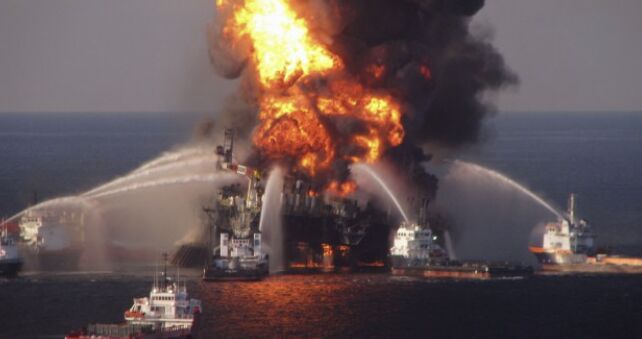Biden Administration Tightens Offshore Oil Drilling Safety Rules in Response to Deepwater Horizon Disaster
The Biden administration has tightened rules for offshore oil drilling safety, focusing on blowout preventer devices after the Deepwater Horizon disaster. Critics argue more needs to be done to address the climate crisis. The American Petroleum Institute criticizes the changes.
The Biden administration has recently implemented tighter rules for offshore oil drilling safety, specifically targeting the use of blowout preventer devices on drilling rigs.
These regulations were finalized on Tuesday, marking an important step towards preventing catastrophic blowouts similar to the 2010 Deepwater Horizon disaster, which claimed the lives of 11 workers and led to the release of an estimated 130 million gallons of crude oil into the Gulf of Mexico.
Biden Pushes New Curbs on Offshore Oil to Safeguard Gulf Whales
— zerohedge (@zerohedge) August 21, 2023
Under the Obama administration, stricter well control rules were put in place in 2016, but they were subsequently relaxed by the Trump administration in 2019. However, the Biden administration has now reversed these policies and reinstated a more stringent regulatory stance.
Failure of blowout preventer equipment was a major factor in the Deepwater Horizon tragedy, and addressing the conditions and pressures under which these devices operate is crucial in preventing future disasters. The new rules set forth by the Interior Department's Bureau of Safety and Environmental Enforcement require that remotely operated underwater vehicles have the capability to open and close critical components of blowout preventers.
They also establish mandates and time limits for investigating failures and providing data on blowouts to regulatory authorities. While these changes represent a revision rather than a complete reversal of the Trump-era regulations, they are expected to resolve an ongoing lawsuit filed by environmental organizations.
However, some critics argue that the new rules do not go far enough. Miyoko Sakashita of the Center for Biological Diversity, one of the organizations involved in the lawsuit, sees the regulations as a step towards ending industry self-policing but believes that more needs to be done to address the climate crisis.
Sakashita urges President Biden to declare a climate emergency and put an end to offshore drilling. On the other hand, the American Petroleum Institute (API) has criticized the regulatory changes, claiming that they continue the politicization of the rulemaking process.
API Vice President Holly Hopkins argues that the policy fails to significantly enhance worker safety or protect the environment, emphasizing the need for regulatory clarity to ensure compliance and safe operations. Overall, the implementation of tighter regulations regarding blowout preventer devices is a crucial step in prioritizing offshore drilling safety.
While opinions may differ on the extent of these changes, they represent a response to lessons learned from past disasters and a commitment to improving the industry's environmental and worker protection practices.




